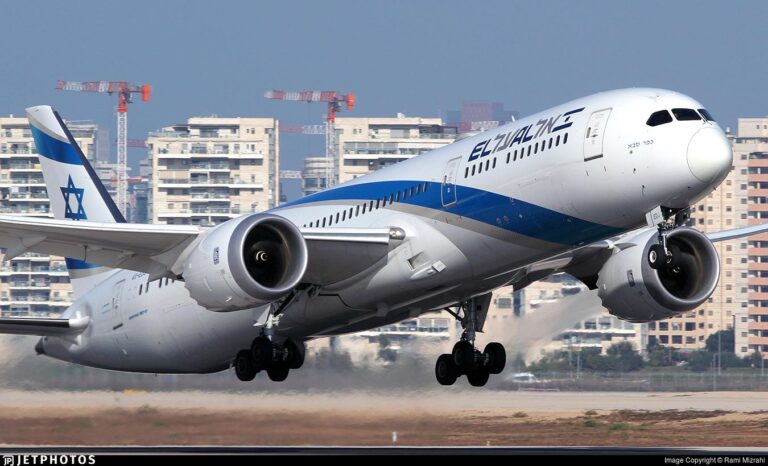Amid escalating tensions surrounding the Gaza conflict, France has discreetly halted visa issuance for El Al flight security personnel operating in Paris. The move marks a significant shift in diplomatic and security arrangements between the two countries, reflecting broader concerns over regional instability and its repercussions in Europe. This development comes as both nations navigate the complex challenges posed by the ongoing conflict and its international ramifications.
France Halts Visa Issuance for El Al Security Personnel in Paris Reflecting Rising Gaza Conflict Strains
In a subtle yet telling move, French authorities have decided to halt the issuance of visas for El Al’s flight security personnel stationed in Paris. This adjustment comes amid escalating tensions tied to the Gaza conflict, underscoring France’s sensitivity to the geopolitical impact the war is exerting on diplomatic and security arrangements. Security officials from the Israeli national carrier, traditionally present in European capitals to ensure airline safety, now face increasing obstacles in a city long regarded as a crucial transit point.
Sources familiar with the matter highlight several key factors influencing this decision:
- Diplomatic pressure: France aims to balance its diplomatic relations with Middle Eastern actors involved in the Gaza crisis.
- Domestic security concerns: Rising unrest and protests in Paris have prompted tighter controls on foreign security personnel operating on French soil.
- Operational constraints: The move complicates El Al’s security protocols for Paris flights, potentially affecting airline schedules and personnel logistics.
| Aspect | Impact | French Response |
|---|---|---|
| Visa Issuance | Suspended for El Al security staff | Enforced quietly without public announcement |
| Security Operations | Disrupted at Paris airports | Increased reliance on local agencies |
| Diplomatic Relations | Heightened tension with Israel | Maintains official neutrality publicly |
Implications of Visa Restrictions on Israeli Airline Operations and Franco-Israeli Relations
The recent decision by French authorities to revoke visa privileges for Israeli airline security personnel, specifically those employed by El Al, marks a significant escalation in operational challenges for the airline in one of its key European hubs. This move disrupts the standard security protocols meticulously coordinated between Israeli and French officials, potentially compromising not only the safety of flights but also the smooth flow of passengers through Parisian airports. Without the security teams typically embedded with El Al flights, there may be increased scrutiny, delays, and logistical hurdles that could ripple across schedules and airline operations. The suspension of these visas reflects growing diplomatic sensitivities amid ongoing tensions in the Middle East, adding extra layers of complexity to an already volatile environment in air travel management.
Beyond immediate airline impacts, the visa restrictions symbolize a subtle but meaningful strain in Franco-Israeli relations. France’s quiet but deliberate action sends a diplomatic signal that may affect broader negotiations and cooperation beyond aviation security, including intelligence sharing and bilateral agreements. Industry experts highlight the potential repercussions in areas such as:
- Security collaborations at major European airports
- Diplomatic trust in joint counterterrorism efforts
- Economic implications for airline operations and tourism flows
This shift underscores the fragile intersection of geopolitics and international transport, where policy decisions reverberate beyond borders, influencing not only security dynamics but also the broader diplomatic landscape between France and Israel.
| Aspect | Potential Impact |
|---|---|
| Security | Increased screening times, reduced trust in risk assessments |
| Diplomacy | Cooling of bilateral talks, reduced collaboration |
| Operations | Flight delays, scheduling disruptions |
| Economic | Decreased passenger numbers, higher costs |
Recommendations for Navigating Aviation Security amidst Heightened Diplomatic Tensions
In light of recent diplomatic frictions impacting aviation security protocols, industry stakeholders must adopt flexible yet robust strategies to ensure uninterrupted airport operations and passenger safety. Cooperation between airlines and local authorities has become more critical than ever, necessitating transparent communication to navigate sudden regulatory changes effectively. Security teams should prioritize establishing contingency plans that account for potential shifts in visa policies and personnel restrictions, particularly concerning foreign security staff.
Furthermore, airports and airlines should focus on enhancing their internal security capacities by investing in advanced training programs for domestic security personnel. This approach minimizes reliance on foreign security teams, which may face travel or work permit challenges during geopolitical crises. Below is a brief overview of recommended tactics for managing heightened diplomatic tensions in aviation security:
- Pre-emptive Engagements: Regular dialogues with diplomatic and security agencies to forecast policy changes.
- Local Workforce Development: Upskilling local security staff to reduce dependence on foreign guards.
- Flexible Staffing Models: Creating versatile personnel rosters that can adapt to sudden regulatory constraints.
- Technology Integration: Leveraging surveillance and screening innovations to reinforce security.
| Challenge | Recommended Action | Potential Impact |
|---|---|---|
| Visa Restrictions on Security Staff | Expand local training initiatives | Reduced operational disruptions |
| Reduced Foreign Security Cooperation | Strengthen diplomatic communication | Enhanced crisis anticipation |
| Sudden Regulatory Changes | Implement flexible staffing and rapid response protocols | Improved adaptability and resilience |
| Dependence on Foreign Security Technology | Invest in domestic technology development and integration | Increased self-reliance and operational continuity |




